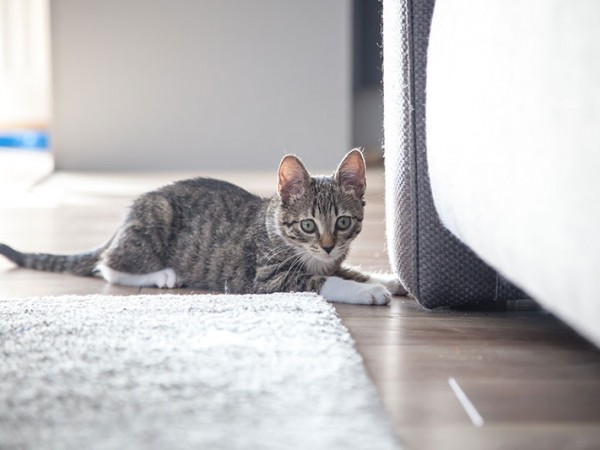What Tenants Need to Know About Owning Pets

Many Australians love to keep pets at home, as both companions and part of the family. In fact, we REALLY love it – in 2016, there were a recorded 24 million pets in Australia, with 62% of Australian households being home to a furry creature. In fact 40% of Australia’s pet owners have dogs, while 25% own cats. However, it’s important to remember that you can’t simply buy a pet and bring it into your home. There are often rules and regulations that people who want to own pets will have to navigate, especially for those who live in apartments.
Typically, it’s quite a straightforward process to do so; nobody wants to be the person who denies someone the ability to own a pet. Nevertheless, there are some necessary steps that you’ll need to take before bringing home a dog, cat, rabbit, or any other pet.
Information for tenants
Most leases will stipulate a ‘no pets’ clause by default. This means that – unless you modify the terms of the lease – you agree to not own a pet for the term in which you are staying at the property. It’s generally possible to get that clause removed by speaking to the landlord or real estate agent. State your desire to own an animal and show your competence, and the clause can be scratched out or amended to include explicit permission to own an agreed upon pet.
Even once you’ve obtained permission to keep a pet on the premises, there are obligations that you must follow in order to avoid issues. You are responsible for any damage that a pet does to a property, and as per the broader lease agreement with your landlord, can face eviction should your pet be creating excess damage.
Pets are also not allowed to disrupt your neighbours’ quiet enjoyment of their property. This means a dog barking excessively or loudly, or pet waste creating a stench that affects neighbouring properties. If neighbours start complaining about such things, a landlord can take actions against you.
Finally, and this should go without saying, if the pet threatens the safety of a neighbour your dog attacks a neighbour’s child, for example ? there is cause for your landlord to serve you with an immediate notice to vacate.
At any time that your landlord chooses to take action against you, you will be able to defend yourself before a tribunal, which has the ability to dismiss any order to vacate that might be served against you if it is determined to be unreasonable.
Information for owners
If you own your own house on an individual property, then you have absolutely no obligation to seek permission to own a pet. You can still be subject to council complaints should your pet prove to be a nuisance or danger, but for the most part, nobody has a right to stop you from owning a pet.
If, however, you are buying an apartment or property that is managed through a strata, things start becoming significantly more complex. In such situations, you’ll need to comply with the Owner’s Corporation and its by-laws, and this may or may not allow for pet ownership. Typically, the by-laws will follow closely one of the following three approaches:
- No animals are permitted – With the exception of a guide dog or hearing dog. If this is the case you will not be able to obtain permission to own a pet.
- Written consent must be obtained – Usually from the Owner’s Corporation, prior to the ownership of any animal (except typically fish).
- You only need to notify the Owner’s Corporation if owning a cat, small dog, caged bird, or fish – Otherwise, you need to seek permission for any other animals.
Other than by-laws that strictly mandate no pets, an Owner’s Corporation cannot deny an application for pet ownership without good cause. But it’s a good idea, prior to expressing interest in purchasing the property, to look through the strata records for other examples of pet ownership and see if there is a precedent for your animal in the building.
Typically, once permission has been granted for the pet, there will be the expectation that the pet is now allowed loose in common areas the halls and foyer, pool, recreation areas, and carpark. You will need to keep the pet under control there. Furthermore, your neighbours will still have the right to complain if the pet is being a nuisance (such as excessive barking), and the Owner’s Corporation will still be able to take action in such a circumstance.
If you are in breach of these conditions or keeping a pet on the property without permission the Owner’s Corporation cannot evict a property owner. What they can do, however, is hand down a fine for non-compliance with the by-laws. If there is continued non-compliance the Owner’s Corporation can institute legal proceedings to have the pet removed and/or further fines.
Owners that allow tenants to own pets in the apartment will also be responsible should that pet misbehave and create problems for the neighbours. The Owner’s Corporation is not able to evict tenants, but it might become important for the owner to do so in order to remain compliant with the by-laws.



